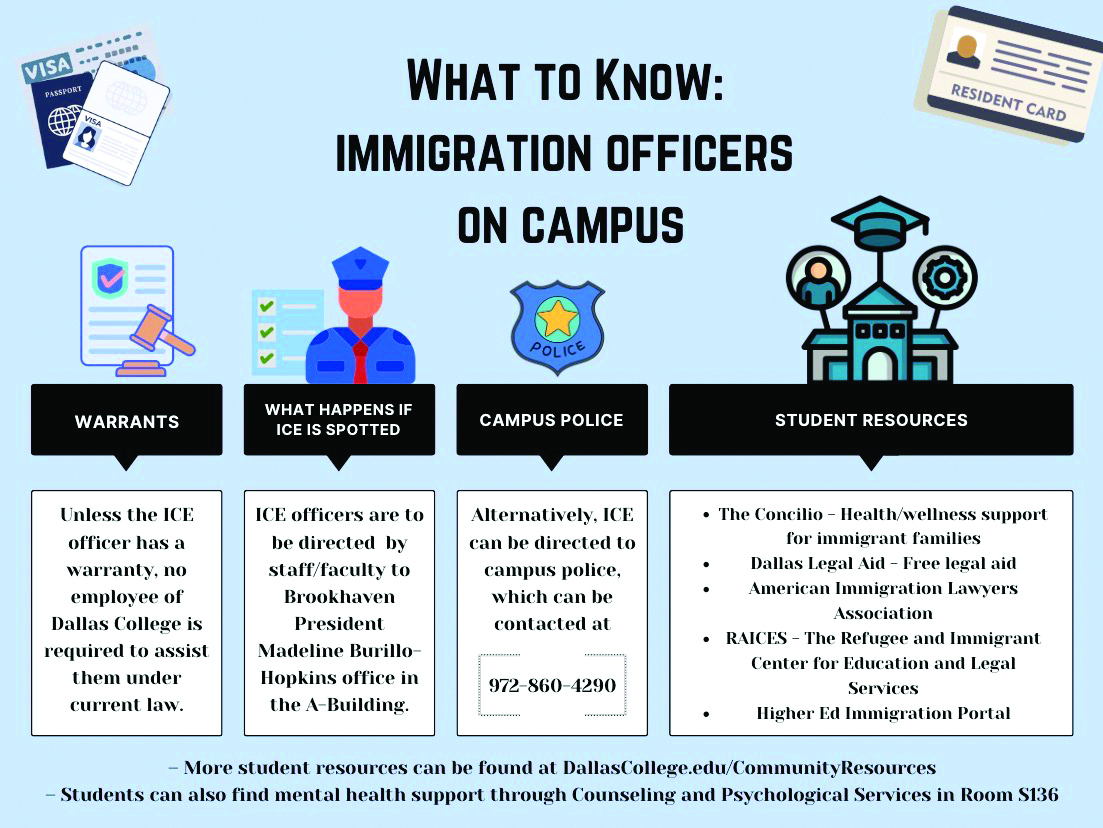Amy White
Staff Writer

Texas law requires all new residents to obtain Texas identification and register their vehicles within 30 days of arrival. It takes one year to establish residency. If these steps are good enough for the Republic of Texas, why are they not good enough for Dallas County Community College District?
Students not only have to meet the state requirements to be eligible for resident state tuition, but they also have to do one of three things: own a home, be employed for at least one year or own a business.
The argument is about taxes. Citizens pay taxes. They pay taxes every time they shop in any store, whether it’s for groceries, gas for a vehicle or even going to a movie. When you own a home, ad valorem taxes that go to schools are collected. According to the DCCCD annual financial report, DCCCD collects 0.09967 percent for every $100 for each home assessed. For example, if a home is tax assessed at $200,000, the owner would pay less than $200 a year in taxes to the DCCCD.
There are exceptions to these rules regarding in-state tuition. For example, members of the military and their families are exempt. This is an understandable policy because military families move around with little or no control over where the government will send them, so it can be hard to establish residency. Another exception includes students from states that border Texas. They are allowed to pay in-state tuition because of the reciprocity agreement with the bordering states.
There are exceptions that, in my opinion, are faulty. First, the non-American NATO and Foreign Service Officers agreements according to Education Code 54.051(M) and 54.232; 19 TAC 21.744. These agreements enable individuals to be considered residents although the state is aware the families will leave Texas.
My personal favorite and the most controversial – exception of non-resident tuition is reserved for the residents of Mexico. According to an article in The Dallas Morning News, Texas is “one of the three states that allow students in the country illegally to receive state financial aid and one of 12 that charges them state-resident tuition.” Qualified students from Mexico can attend college in the state of Texas and pay in-state tuition. To be qualified, the student must have resided in Texas for at least three years and must sign an affidavit stating their intent to seek citizen- ship when finished with school. Unbelievable. They are not even citizens of this country, yet they are afforded resident tuition rates American citizens aren’t eligible for because of loopholes set forth by the state and DCCCD.
Students 55 and older receive reduced rates, but being only 53, I am too young to qualify. Waiting another two years to start my college career just to get reduced rates is not a feasible option for me. I hope to have finished with Brookhaven by then and moved on to complete my bachelor’s degree.
I understand the requirements for in-state tuition, but I believe there are always exceptions to every rule, which the DCCCD has shown it is willing to make. Students who receive scholar- ships to attend Texas schools and pay non-resident tuition will probably move back to their home states when they graduate, and Texas will have lost another tax-payer. But in the case of mature students moving here, especially those who intend to stay long past graduation, shouldn’t they be afforded the ability to establish residency for school as set forth by the State of Texas?
I do understand the right of the DCCCD to make exceptions for select students (and I hold no ill will toward those students at all), however I do find the inflexibility of the policy unfortunate. It would be a shame to lose not only me, but countless others like me because of financial hardships created by out-of- state tuition rates. Rules can be made to bend a little. Maybe students in situations similar to mine should be evaluated on a case-by-case basis.














